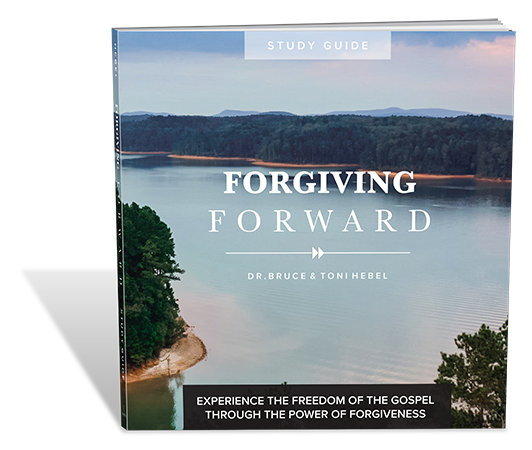The Insufficient Why
The Foundational Reason We Forgive
Recently someone recommended a movie to us about forgiveness. We know one of the main actors personally and enjoyed the well-written movie very much. As you might imagine given the Forgiving Forward message we carry, I was quite interested to see how the concept of forgiveness was developed in the film.
As the story unfolded, it dawned on me why I am often left with a disappointed feeling when I watch movies, hear sermons, or read books on the subject of forgiveness. To be clear, it was a good movie with a common plotline. There was a tragic event which wounded several major characters, including the one who caused the event. So, throughout the film the perpetrator and the victims struggle with the torment of unforgiveness and forgiveness is finally granted, followed by reconciliation and a happy ending. Yet something was missing. What was it? I realized that there are two concepts deficient in most movies, sermons, and books about forgiveness: the practical ‘how to’ and the sufficient ‘why’.
In every movie about forgiveness that I have seen, at some point in the storyline, the main character struggling with forgiving reaches a crisis point. Standing at the end of a dock or in the woods or alone in a room, they scream in desperation, “I don’t know how to forgive!”, or something to that effect. The scene shifts to one in which the character, having forgiven, is now at peace. What we don’t see is HOW he forgave. Specifically, what did he do? The how is important.
Wanting to forgive is not the same as choosing to forgive.
We encounter many people who say they have forgiven, but are still suffering in torment. Forgiveness is not about a desire; it’s about a choice. It’s not a process; it’s a transaction. That’s why in the Forgiving Forward teaching, we outline the 7 Protocols of Forgiveness.
The second issue I have is with the ‘why’ we forgive that is normally given, which while legitimate, is insufficient. The insufficient ‘why’ that is often portrayed to us is that it costs too much to live in unforgiveness, which it most definitely does. Jesus tells us in Matthew 18 that the Heavenly Father hands us over to demonic tormentors when we choose not to forgive. That is horrific discipline. Toni and I have coached hundreds of individuals and couples to forgive and have seen people immediately freed from depression, anxiety, addictions, and in some cases, from physical ailments. There are clear and undeniable personal benefits for us when we choose to forgive. No doubt about it! But our freedom from torment is not the primary reason we are to forgive. It is the insufficient ‘why’.
The sufficient ‘why’ is found in the Gospel. The reason God hands us over to the tormentors is because forgiveness is at the core of the Gospel. You can’t cut the Gospel anywhere it doesn’t bleed forgiveness. When Jesus stretched out His arms on the Cross and said, “It is Finished,” What was finished? The payment for the sin debt of the world! 1 John 2:2 says that Jesus is “the satisfaction for our sins, but not for ours only, but also the sins of the whole world.” This means that every sin ever committed, by anybody, anywhere on the planet, at any point in time in history was paid for by Jesus on the Cross. Three days later, when God Father, by the power of the Holy Spirit, raised Jesus from the dead, the Father said, “I agree! I receive the Blood of my Son as payment in full for the sins of the world against Me.” So when we say, God may forgive, but I won’t, we are in essence saying, “Dear Heavenly Father, I appreciate the fact that you place such a high value on the blood of Your Son that you receive it as payment in full for the sins of the world against you, what they did to me and the people I love, I need something more from them. The blood of your Son is not enough to satisfy me!” And what Father would easily handle the crowning achievement of His son being dishonored by the very ones He achieved it for.
Why do we forgive? Because the blood of Jesus paid for what they did! We forgive because the blood of Jesus covers all sin, including the ones that wound me, that wound you, that wound us.
I want to reiterate that the reasons to forgive that are most often presented to us are valid. There are significant personal consequences for us when we don’t forgive. It has been well said that “bitterness is the poison we drink, hoping someone else dies.” We believe that God disciplines unforgiveness more harshly than any sin we, as believers, can commit. Yet, the relieving of the pain of the discipline is to me an insufficient motivation for us to forgive. The reason for the discipline should be the primary motivation for us to choose to forgive. The sufficient ‘why’ for us to forgive is the sufficiency of the blood of Jesus to cover all sins, including the ones that wound us.




